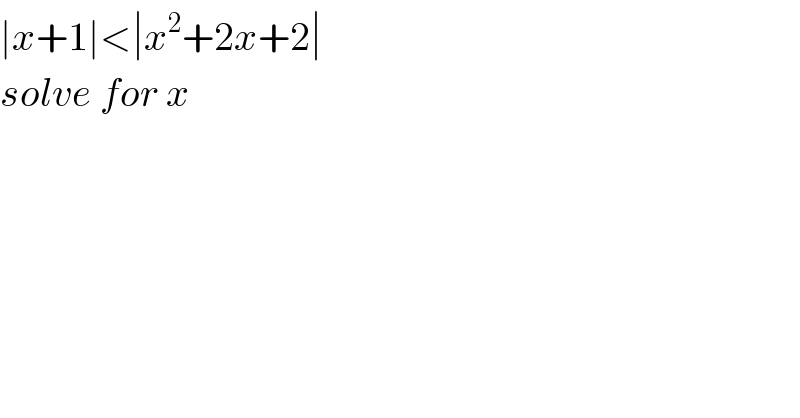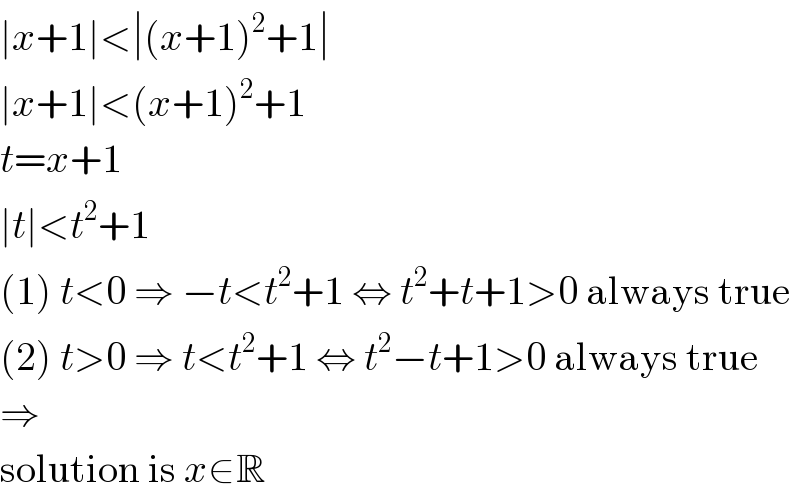
Question and Answers Forum
Question Number 122322 by EngLewis last updated on 15/Nov/20

Answered by mathmax by abdo last updated on 15/Nov/20
![we have x^2 +2x+2 =(x+1)^2 +1>0 ⇒∣x^2 +2x+2∣=x^2 +2x+2 e⇒∣x+1∣−x^2 −2x−2<0 let f(x)=∣x+1∣−x^2 −2x−2 x −∞ −1 +∞ ∣x+1∣ −x−1 0 x+1 f(x) −x^2 −3x−3 −x^2 −x−1 ⇒ f(x)= { ((−x^2 −3x−3 ,x≤−1)),((−x^2 −x−1 ,x≥−1)) :} case1 x≤−1 f(x)<0 ⇒−x^2 −3x−3<0 ⇒x^2 +3x+3>0 Δ=9−12 =−3 ⇒this polynom is slways >0 ⇒S_1 =]−∞ ,−1] case2 x≥1 f(x)<0 ⇒−x^2 −x−1<0 ⇒x^2 +x+1>0 this polynom is also >0 ⇒S_2 =[−1,+∞[ so S =∪ S_i =R](Q122326.png)
Answered by MJS_new last updated on 15/Nov/20

Answered by mathmax by abdo last updated on 15/Nov/20

Answered by TANMAY PANACEA last updated on 16/Nov/20

